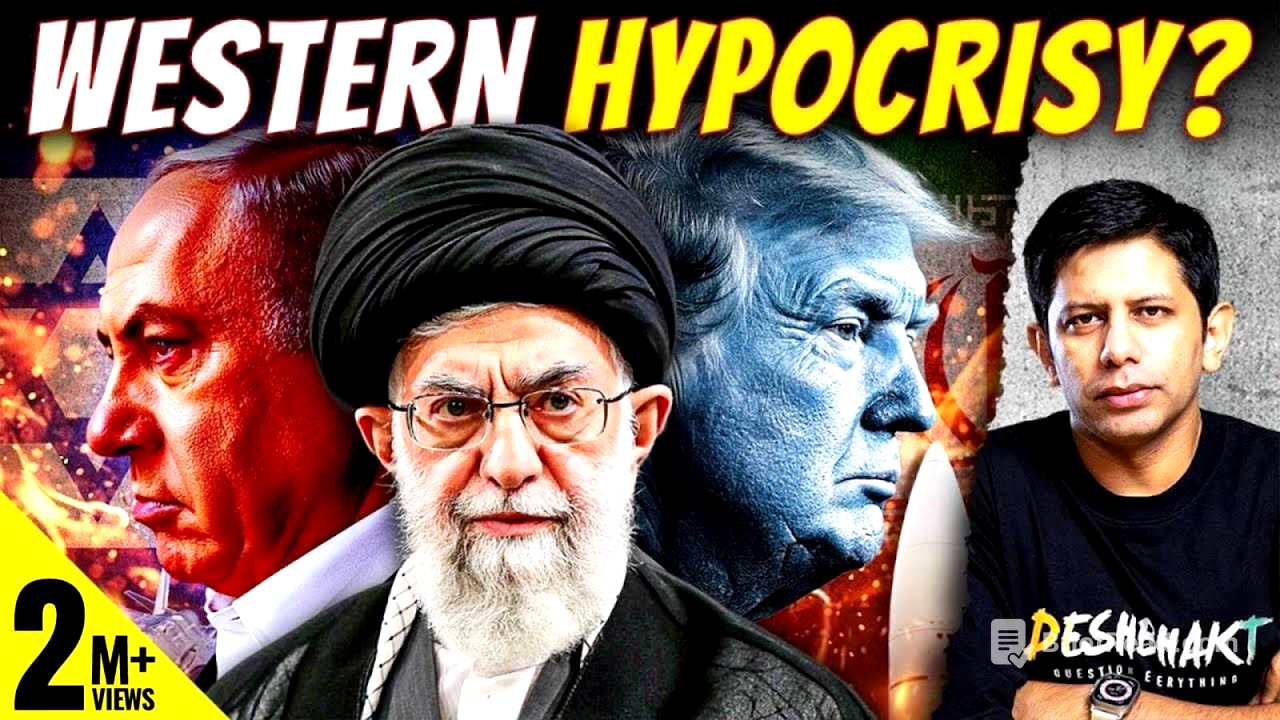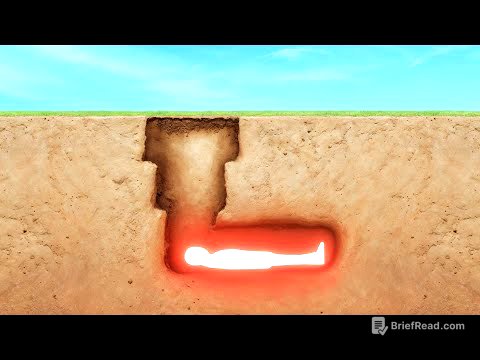TLDR;
The video discusses the recent tensions between Iran and Israel, highlighting the double standards and hypocrisy of the West in their coverage and reactions to the conflict. It points out the disproportionate attention given to Israeli casualties compared to Palestinian deaths, and questions the narrative of Israel as the victim. The video also touches upon the history of the conflict, Iran's nuclear ambitions, and the potential for further escalation, while emphasizing the need for de-escalation and a two-state solution.
- Western media is biased towards Israel, ignoring Palestinian suffering.
- Israel's actions in Gaza are often overlooked or justified.
- Iran's retaliation has exposed Israel's vulnerability and challenged the West's narrative.
- The US-Israel relationship is under scrutiny, with questions about who controls whom.
- De-escalation and a two-state solution are crucial for regional stability.
Intro [0:00]
The world is currently gripped by fear, with Western media pointing fingers at Iran for escalating tensions. Iran's recent actions are seen by some as a mistake that has endangered global stability. Western experts argue that Iran should have silently tolerated Israel's actions and pursued a nuclear deal, foregoing any retaliation.
Iran's Retaliation and the Aftermath [0:09]
After what Iran perceived as escalating aggression from Israel, Iran launched over 350 ballistic missiles, including hypersonic ones, some of which breached Israel's Iron Dome defense system. These missiles landed in cities, resulting in casualties and forcing many Israelis into bunkers. This marked a turning point, as Israelis began to realize that other nations are capable of retaliation. Iran justifies its actions by pointing to Israel's targeting of its nuclear program, scientists, and generals, mirroring Israel's response to Hamas's October 7th attack.
Double Standards and Hypocrisy [1:53]
The video highlights a perceived double standard in the West's reaction to the conflict. While the loss of lives in Israel is mourned, the significantly higher number of casualties in Gaza, including many children, is often downplayed. The lack of basic necessities in Gaza is also mentioned. The potential involvement of the US and UK is discussed, with the West seemingly portraying Israel as the victim. The video argues that the West's hypocrisy is becoming increasingly apparent, with people recognizing the performative nature of their support for Israel.
Team Deshbhakt's Stance [3:23]
Team Deshbhakt clarifies its position, emphasizing the need for de-escalation and a two-state solution between Palestine and Israel, a stance consistent from Nehru to Modi. While not supporting the religious fundamentalism in Iran under Ayatollah Khamenei, the channel also condemns Israel's actions that have harmed children.
The West's Double Standards Exposed [5:16]
The video focuses on the West's double standards, portraying them as losers in the current situation. It shows examples of Israeli officials expressing shock at civilian targeting in Israel, while seemingly ignoring the same in Gaza. The video questions the selective outrage and points out the disproportionate focus on Israeli suffering compared to the ongoing crisis in Gaza. The IDF's attempts to portray Israel as a victim are also criticized, including the use of a fake video.
The Right to Exist and the Mockery of Palestine [7:39]
Even if Israel has a right to exist and defend itself, the video questions the targeting of thousands of Palestinians. It criticizes the normalization of violence, pointing to boat tours that showcase the destruction in Gaza. The video also condemns the mocking of Palestine on social media and highlights the high number of UN workers killed in Gaza by Israeli forces.
Media Bias and Iran's Nuclear Ambitions [9:41]
The video contrasts the limited coverage of Palestinian suffering with the extensive coverage of Israeli fears and anxieties in Western media. It questions why Iran should sign a nuclear deal while Israel possesses nuclear weapons. The video also points out the historical context, including Israel's alleged theft of nuclear technology and its refusal to sign the Nuclear Non-Proliferation Treaty.
BBC's Bias and the Regime Change Agenda [12:47]
The video highlights a study by the Center for Media Monitoring that reveals a pattern of bias, double standards, and silencing of Palestinian voices in BBC's coverage of Israel. It questions the international media's portrayal of the conflict, where Israel's actions in Gaza and Lebanon are often overlooked, while its targeting of Iranian scientists and generals is proudly showcased. The video suggests that the West's ultimate goal is regime change in Iran, using the perceived threat of nuclear weapons as justification.
Broken Deals and the US-Israel Relationship [15:45]
The video recalls how the US broke the previous nuclear deal with Iran under the Trump administration, and how Israel's actions have undermined the possibility of a new deal. It questions whether Israel is truly listening to the US and highlights the growing debate in America about whether the US controls Israel or vice versa. The video concludes by emphasizing the need for calm and de-escalation to prevent further complications.
Iran's Response and the West's Hypocrisy [16:58]
Iran's retaliation has exposed Israel's vulnerability and demonstrated its willingness to stand its ground. While a potential deal with Iran has been put on hold, the video argues that the West's hypocrisy is now obvious, undermining its moral authority and long-term influence. This is seen as detrimental to world peace.









